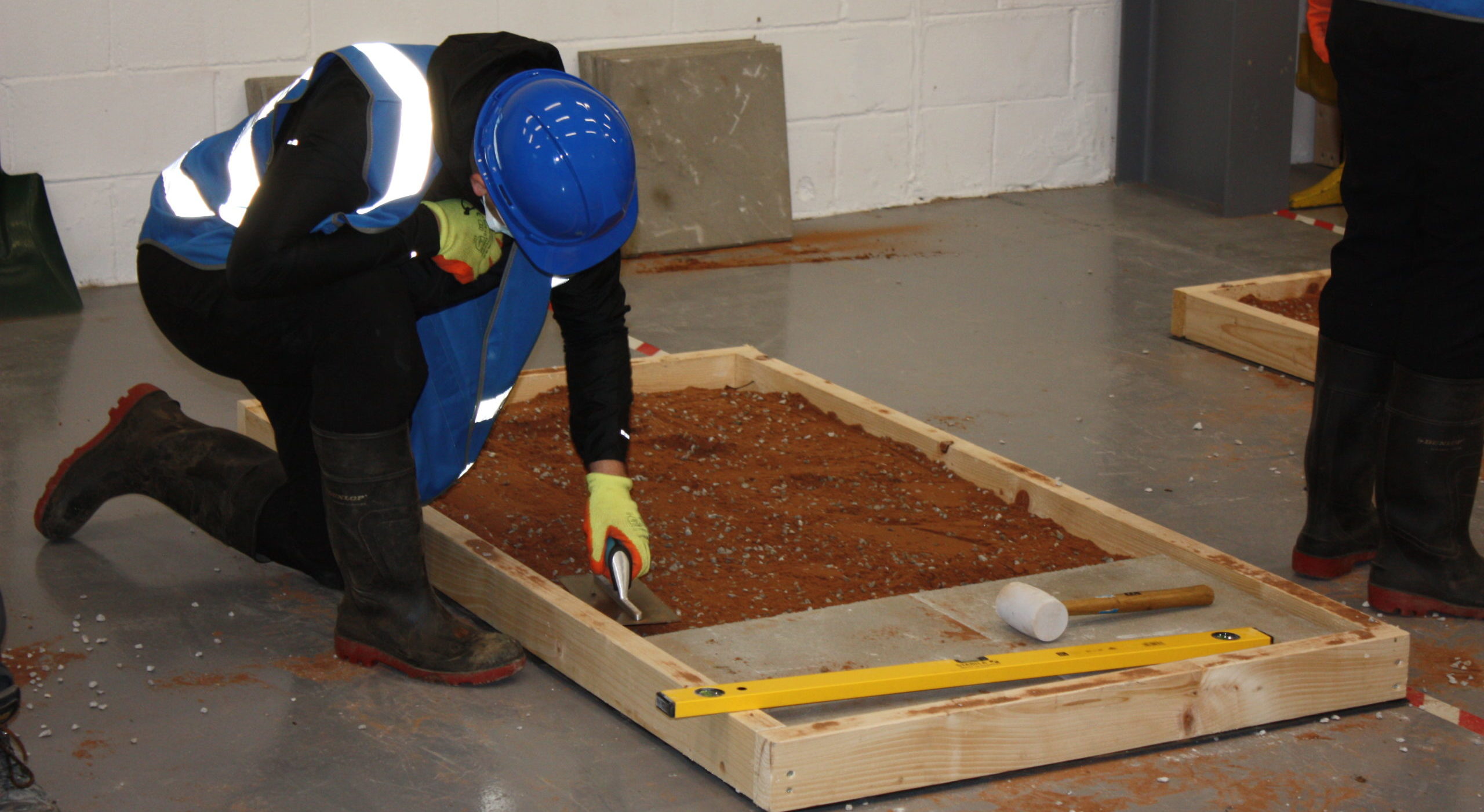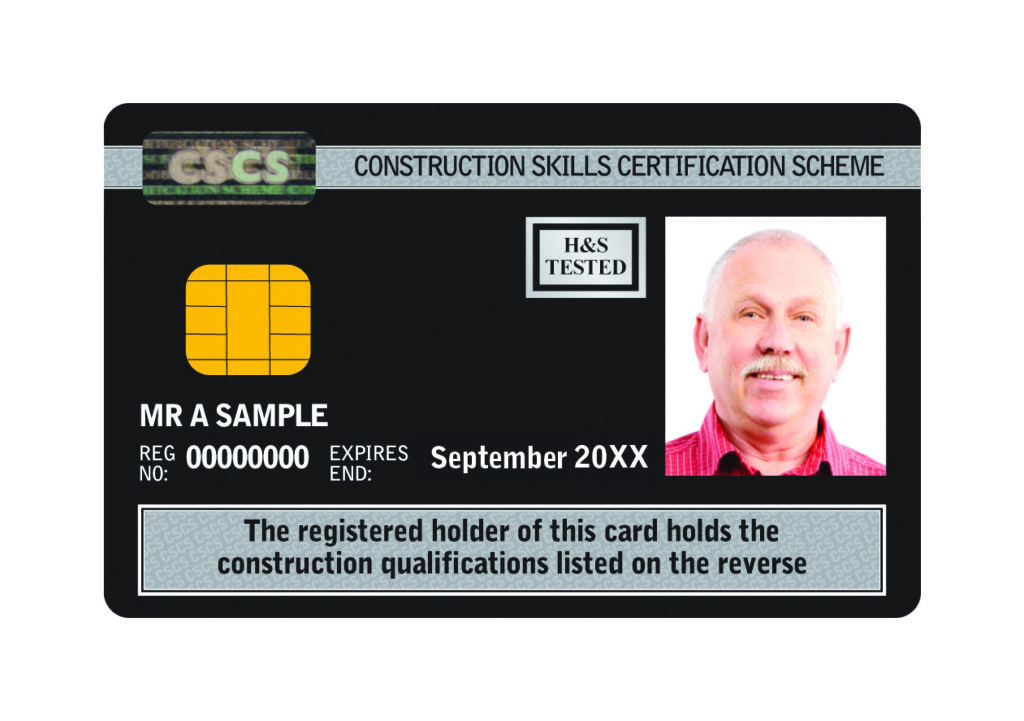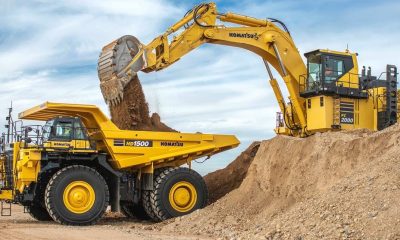Business
4 Common Risk Factors on Construction Projects
Published
2 years agoon
By
admin
All construction projects carry some level of risk. Being able to identify and manage risks requires skill, careful planning, and being able to make good decisions quickly. When risks become reality, they can be detrimental to the successful completion of your project. Properly managed risks can lead to higher profits, stronger relationships with clients, and the ability to grow and expand your business.
Here are four common risk factors to watch out for on construction projects along with tips on how to properly manage them and prevent them from derailing your project.
Labor Shortages & Productivity Issues
Not having enough workers available to complete a project or hit productivity goals is a huge risk when taking on new projects. Without the manpower to perform the work, the project can suffer from longer construction schedules and potential delays in delivering the project on time to the owner.
Issues with labor shortages have been plaguing the construction industry since recovery from the last recession began. Construction companies have been struggling to fill positions to keep up with the growing demand for their services.
The construction industry lost over a million jobs from February to March 2020 due to the COVID-19 pandemic but has since gained back all that was lost and the number of jobs is now higher than it was prior to the start of the pandemic. Despite the gains, the latest Job Openings and Labor Turnover Summary (JOLTS) report from the Bureau of Labor Statistics show there are 364,000 job openings in construction as of February 2022.
To fill vacancies, many construction firms have been taking on employees with little or no previous construction experience. This isn’t necessarily a bad thing, but there are additional risks that come with having a less experienced crew. These workers won’t have the same skill sets as experienced workers, meaning they will be less productive and will probably need closer supervision when they are first starting out.
Safety is also a construction project risk factor to consider when working with new employees. They lack the training and experience to know all the rules or be able to identify hazardous situations on the jobsite. Safety training is just as, if not more, important as skills training and should be a top priority with new hires.
To combat labor shortages, offer competitive wages and benefits, and develop a strong company culture that values employees and rewards hard work and dedication. This requires time and money to invest in the training and development of your workforce.
To retain workers, provide opportunities for training, mentoring, and continuing education courses available to both your new and existing employees. Establish advancement opportunities and career paths for workers to move up within your organization.
Health & Safety Hazards
Keeping workers safe should be the top priority on every jobsite. Site conditions can change rapidly, and unexpected hazards can crop up at any time creating unexpected project risks. Major accidents can result in serious injuries or fatalities to your employees. Your goal on every project should be to be accident-free and ensure every worker goes home safe to their family.
In addition to the potential harm to workers, a serious accident can cause work to be stopped or delayed and lead to a decrease in productivity due to low morale among your workers. This can put your project, and your company, at huge financial risk due to all the costs associated with dealing with an accident.
It’s far cheaper to invest in training, engineering controls, and PPE to prevent accidents than it is to deal with the aftermath when one occurs. Make sure your subcontractors understand your commitment to safety and provide training to their employees before beginning work.
Before starting a project, hold a kickoff safety meeting with your employees and subcontractors. Cover the risks and hazards that will be present throughout each stage of construction. Make sure everyone has reviewed and understands the safety plan you’ve developed for the project.
Topics covered in a kickoff safety meeting should include safe work practices for the various activities and tasks being performed, the selection and proper use of personal protective equipment (PPE), and basic first aid practices. Discuss the engineering safety measures that will be in place on the jobsite.
Hold toolbox talks on a daily or weekly basis to reinforce your commitment to job safety. Focus on high-risk scenarios inform workers about changes to the jobsite or working conditions. These can be broken out by trade to cover the work being done each day with an emphasis on potential hazards and how to safely complete each task.
Subcontractor Default
Dealing with a subcontractor that fails to perform on a project is a major risk factor for general contractors on construction projects. A defaulting subcontractor that isn’t meeting its contractual obligations can completely wreck your project schedule and destroy your profit margin. Schedule delays can also impact other subcontractors and can result in costly rework.
No subcontractor starts a job with the intention of defaulting on the work. Subcontractors must front a substantial portion of the costs on a project before they start getting paid. This can quickly lead to cash flow problems if they overextend themselves by taking on too much work or payments on other projects are being delayed.
Be proactive in monitoring your subcontractors if you suspect things might be getting off track. Common signs to watch for include a sudden decrease in the subcontractor’s workforce on the jobsite, delayed materials deliveries, and failure to pay their subcontractors or suppliers on time.
Replacing a terminated subcontractor or supplementing their uncompleted work can kill a project and hurt your company’s reputation. You might be better off working with them to solve any issues to complete the project rather than letting them go.
If a subcontractor is experiencing difficulties, they might not be upfront with you about the problem. Address any red flags with your subcontractor regardless of their performance. If you wait too long to confront a struggling subcontractor, you might not be able to recover.
Prequalifying your subcontractors is important to ensure they can complete the work, both physically and financially. Review your prequalified subcontractors to determine which ones can handle the project before inviting them to bid on your project.
Change Orders
Change orders are an inevitable part of construction and can be a major risk factor when not managed properly. A change order is simply an addendum or amendment to the original construction contract or the scope of work. They can be initiated by the owner, general contractor, or subcontractors. They typically require performing additional work for reasons such as omissions or errors in the original scope of work or ambiguous construction drawings.
Increased project costs, delays in hitting contract milestones, interruptions of workflow, and not completing a project on time are some of the issues caused by poorly handled change orders. Managing change orders takes preparation, understanding, and lots of communication with all parties involved with the project.
Disagreements over what warrants a change order are common since they affect the different parties involved in different ways. Clarify any discrepancies or vague items in the scope of work or plans and specs. Make sure your subcontractors are clear on the work they’ve been contracted to complete. This can eliminate the need for change orders down the road.
Some contracts may include conflicting language or clauses regarding change orders. A clause might state that change work can’t begin without having a written and approved change order while also including language allowing the owner to request additional work without an agreement in place. Address these issues before executing a contract with your client.
There are times when a change order won’t impact the cost or schedule of a project, but that’s not always the case. Advise your client that work may need to be stopped to address changes and discuss any delays or schedule changes that need to be made. Make sure that all labor, material, and equipment needs are covered in the change order.
Remember to consider how each change order will impact your subcontractors on the project. Work with your subs to evaluate any changes to their costs and schedule and determine how their contracted work will be affected by the change order.
Other Construction Project Risks
Other risk factors common on construction projects include incomplete drawings and poorly defined scope, design errors, unknown site conditions, poorly written contracts, unexpected increases in material costs, and poor project management. Properly identifying and managing construction risks are key to completing successful and profitable projects.
Need more project leads? ConstructConnect finds you the best construction projects to bid on and win more work.
Business
Qualifications to become a site manager in construction
Published
6 months agoon
November 10, 2023By
admin

Qualifications to become a site manager in construction.
If you’ve been wondering ‘what qualifications do I need to be a site manager’ or ‘do I need a site manager Construction Skills Certification Scheme (CSCS) card’ to manage a construction site, then you’ve come to the right place.
Highly experienced and knowledgeable when it comes to the training required to work in the construction industry, the SB Skills Solutions team knows exactly what it takes to become a construction site manager.
To help you understand which qualifications are worth exploring and obtaining for this role, we explain the different site manager training routes and which one you should consider taking based on your prior workplace experience and skills.
What is the difference between a site manager and site supervisor?
While a site manager and a site supervisor may seem like interchangeable terms and roles, they actually have differing responsibilities. While a site supervisor position is generally an entry-level role, a site manager position requires either more relevant experience in the industry or a higher qualification.
Site managers tend to have the additional responsibility of managing several construction sites at once, whereas site supervisors typically concentrate on just one location.
What qualifications do you need to become a site manager?
Unlike some of the other positions on a construction site, site managers have a large amount of responsibility. As a result, they need to have the right site manager qualifications, skills, and experience to ensure the site is operating both efficiently and safely.
However, there’s not just one qualification every construction site manager possesses.
Site manager qualifications include:
- SMSTS (Site Management Safety Training Scheme)
- National Vocational Qualification (NVQ) Level 6 in Construction Site Management
- Level 6 Civil Engineering Site Management Degree
- Higher National Certificate (HNC) in Construction or related disciplines
- Higher National Diploma (HND) in Construction Management or related disciplines
- Foundation Degree in Construction Management
- Degree in Construction Management
- Apprenticeship in Construction Site Manager
- Higher Apprenticeship in Construction Site Manager
You may also need:
- High-Risk First Aid
- Confined Spaces (If it applies to the site)
- Qualifications in the work being carried out
Put simply, this means you can take a variety of routes and qualifications to become a construction site manager. Whether you want to become an apprentice, take an undergraduate degree, or apply for a work-based NVQ, there’s no end of options to explore.
It’s important to bear in mind, however, that each route will have different applicant requirements.
For example, to be considered for an apprenticeship in construction site management, you will need to have a grade C or 4 in GCSE English Language and Mathematics or equivalent level 2 qualifications.
What site manager NVQs do you need?
Equivalent to a bachelor’s degree, an NVQ Level 6 in Construction Site Management is a sought-after
qualification that can take anywhere from just four weeks up to 12 months to complete.
The course can be fast tracked, if desired, but the duration of the course depends mainly on the motivation and availability of the applicant. The ultimate NVQ course is designed to assess the competency of the applicant and is one of the highest qualifications you can achieve in the construction industry.
After obtaining this qualification, you will be one step closer to being able to apply for your site manager CSCS card (commonly known as a black card) which can help you to secure employment as a construction site manager.
What HS&E Test certificate do you need?
Before you can apply for a CSCS card, however, you will first need to pass the required level of CITB
(Construction Industry Training Board) Health, safety and environment (HS&E) test within the past two years.
To apply for a manager CSCS card, you will need to apply for and pass the CITB Managers and Professionals HS&E test or an approved alternative. You can use CSCS’s card finder to discover which CSCS card you are eligible to apply for based on either your occupation or qualification.
Alternatively, if you know which HS&E test certificate you require to obtain your desired position in the construction industry, then you can book your HS&E test here.
How do you get a Black CSCS Card?
Keen to obtain your black card from CSCS? If so, you will need both the relevant NVQ qualification as well as a completed CITB Managers and Professionals HS&E test. If you’ve taken an SMSTS course, then this can be put towards achieving your NVQ Level 6 in Construction Site Management.
If you’re not sure how your current qualifications can help you to become a construction site manager or want more information regarding the site manager CSCS card, then contact the experts at SB Skills Solutions.
We can provide you with professional guidance and advice, and direct you towards relevant site manager training courses.
Find out more about becoming a construction site manager
If you’d like to learn more about becoming a construction site manager, obtaining your black CSCS managers card, or you require more information regarding the site manager qualifications you can obtain at SB Skills Solutions, please feel free to get in touch with our team today.
Our Construction Site Management NVQ Level 6 qualification is ideal for individuals that are already working in the construction industry and are eager to increase their earning potential.
This course is designed to help the participants build their construction competence, skills, experience, and knowledge.
Every NVQ assessor at SB Skills Solutions has at least ten years of relevant experience and possesses either the Level 6 Construction Site manager NVQ, PTLLS (Preparing to Teach in the Lifelong Learning Sector), or Assessor Award, so you can rest assured that you’re in highly knowledgeable hands.
The site management course paired with our qualified assessors can ensure you have everything you need to begin a career as a construction site manager. To find out more about this Level 6 qualification, please don’t hesitate to contact our friendly team today.
To speak directly to a member of our team, simply give us a call on 01695 558420. Alternatively, you can also get in touch by sending your enquiry via email to info@sbskills.co.uk.


Keen to explore all your career options – including a position as a plant operator?
Luckily, the team of expert tutors at SB Skills Solutions have helped countless companies upskill their employees as well as numerous individuals obtain essential qualifications to achieve their dream job in the construction industry and further afield.
From the average plant operator salary in the UK to which qualifications, skills, and training courses can help you to become a plant operator, we explain everything you want to know about this profession.
What do construction plant operator jobs involve?
As a plant operator, you’ll be required to carry out a wide range of tasks. Primarily, this will include the operation, monitoring, and maintenance of heavy machinery like diggers, bulldozers, cranes, and excavators.
With help from these machines, you may be asked to move, excavate, lift, or crush building materials or organic matter.
In the event that these machines stop working or develop inefficiencies, a plant operator will be on hand to rectify any issues and support productivity. This role tends to also cover the maintenance of these machines, ensuring they’re in good working order.
A more comprehensive list of plant operator responsibilities can include:
- Supervising and overseeing operations
- Monitoring process parameters
- Performing maintenance tests
- Ensuring safety rules are followed
- Operating heavy machinery and equipment
- Transporting a variety of materials
A construction plant operator may have more specific daily duties such as:
- Operating forklifts, bulldozers, excavators, trucks, and more heavy machinery
- Transporting and storing building materials and earth
- Carrying out safety checks
- Level out working areas
- Communicate using radio signals
What are the working conditions like?
A construction plant operator will often be required to work outdoors in a range of weather conditions. Construction sites aren’t squeaky clean like an office or control room. You may work at heights such as operating a tower crane or a large excavator.
Instead, the working conditions for a construction plant operator tend to be significantly dirtier and nosier than alternative plant operator positions. Due to the nature of the building construction industry, you may also be required to work nights or weekends in order to deliver the necessary progress within the set construction deadline and budget.
How much does a plant operator earn?
According to information published by Totaljobs, a plant operator salary in the UK varies between £27,681 and £37,500, with an average annual salary of £32,500. It’s worth bearing in mind that the exact salary for this position will naturally vary depending on the location of the job and the industry that you work in.
Higher-paying positions are more accessible to individuals that upskill themselves, allowing them to work in a wider range of relevant industries. This is because plant operators tend to specialise in just one type of equipment.
What skills do I need to become a plant operator?
Unsure whether you have the necessary skills to become a plant operator? Below, we list some of the most common skills plant operators possess that can help them to succeed in both this role and their chosen industry. These plant operator skills include:
- An interest in heavy machinery and equipment
- Ability to operate, fix, and maintain machinery
- Understanding of engineering, maths, and computers
- Problem-solving capabilities
- Ability to use relevant computer software
- Strong attention to detail
- Excellent teamwork skills
- Ability to work independently
- Able to work well under pressure
Construction plant operators must also possess certain physical skills like excellent movement and coordination.
What qualifications do construction plant operators need?
In England, if you want to become a construction plant operator, you could obtain either your Level 2 NVQ (National Vocational Qualification – practical, work-based qualifications) in Construction Plant Operations, your Level 2 Construction Plant Operative Apprenticeship qualification, or your Level 3 Diploma in Construction and the Built Environment.
In addition to these qualifications, you may also need to apply for your blue CPCS (Construction Plant Competence Scheme) Competence Card or your CSCS (Construction Skills Certification Scheme) accreditation to work on a construction site as a plant operator.
What courses and training can I take to become a plant operator?
There are many routes you can take to become a plant operator. Some of these avenues involve applying for an apprenticeship, while others require work experience in the relevant industry to get you started.
To help you determine which route might be right for you, we explore each of these avenues in more detail.
College or training provider
As mentioned above, a course from either a college or training provider in Level 2 Certificate in Construction Plant Operations or Level 3 Diploma in Construction and the Built Environment can provide you with the relevant qualifications to become a plant operator.
While these courses will cover most of the required skills to join this profession, on-site experience is also crucial to obtaining a construction plant operator role, so many applicants will seek out a trainee position on a construction site following completion of the course.
For the level 2 course, you’ll need two or more GCSEs at grades 9 to 3 (A* to D), while a level 3 course requires four or five GCSEs at grades 9 to 4 (A* to C). Without GCSEs, you must hold an equivalent qualification.
Trade work
Working your way up is one of the more common ways you can become a plant operator. Often, if you’re enthusiastic enough and willing to work hard to obtain the relevant plant operator skills and qualifications, many employers will consider offering individual work as a general labourer with training opportunities.
They may request certain GCSEs grades (in subjects like English, maths, and technology), but they can provide you with invaluable on-site experience with heavy machinery and equipment.
Once you’ve gained enough experience and knowledge of the construction industry, they may contact a training provider to help you obtain the relevant qualifications to become a plant operator.
Career path and progression
Once you’ve managed to secure a plant operator position, there is still room for career progression. Often, one of the best ways to both increase your earning potential and develop your career in this industry is to specialise in a broader range of machines and equipment. This will allow you to work in different plants and positions.
Contact SB Skills Solutions
If the potential for career progression and the day-to-day duties of a construction plant operator seems like a good fit for your skills and professional aspirations, why not get in touch with the knowledgeable team at SB Skills Solutions to find out more about our plant operator course?
Our qualified team of experienced assessors can help you to obtain your NVQ Level 2 Plant Operations qualification, and by extension, achieve your blue CPCS Competence Card.
Recognised by the Construction Plant Competence Scheme (CPCS) and NPORS this NVQ can increase your earning potential while providing you with sought-after skills, experience, and competence in plant operation.
With the right support, we can ensure you learn the relevant skills and knowledge to become a plant operator. To find out more about the contents of the plant operator course, our prices, or alternative construction training courses, please don’t hesitate to contact our friendly team today.
To speak directly to a member of our team, simply give us a call on 01695 558420. We also welcome enquiries submitted via email to info@sbskills.co.uk. After receiving your plant operator course enquiry, we’ll ensure a prompt response to your query or a schedule a call to learn more about your training requirements.
Business
How to Become a Construction Site Manager
Published
8 months agoon
September 14, 2023By
admin
Construction site managers are responsible for small sections of a construction project all the way through to management of entire development projects.
This role is diverse and not for everyone, but if you feel that you can take on the responsibility of a construction site manager, then look no further.
The team of expert training providers at SB Skills Solutions has created the only guide you’ll need to become a building site manager. Use this guide as your map to your future construction site manager job!
Below, we explore the role, earning potential, and day-to-day duties of a building site manager. We also explain which site management qualifications are necessary to obtain this position and the routes you can take to secure a construction site manager role.
What is a site manager?
A building site manager (also referred to as a construction site manager or site agent) is in charge of overseeing the day-to-day running of a construction site. Their role revolves around supervising the construction project as a whole, so they have the responsibility of ensuring every contractor is working safely and efficiently.
As well as liaising with contractors, they’ll also commonly work alongside architects and surveyors. A construction site manager helps the entire team stay on track, ensuring the building project is finished on time and within budget.
A building site manager will generally work in one of the five project groups; residential, commercial, industrial, environmental, or infrastructure. Your experience and area of interest in construction will often dictate which group you end up working in.
What does a site manager do?
Due to the supervisory nature of this position, the roles of a site manager are wide and varied. Depending on the size of the building project, these duties can range from ensuring the project stays on budget to ordering materials and liaising with clients.
It’s important to also note that a building site manager must be versatile as they will often be required to split their time between working on-site, working in an office, and working in a temporary office built on site. Frequently working in a variety of weathers (hot, cold, and wet!), they must be content wearing protective and high-visibility clothing, too.
While construction site managers tend to work the standard working week, they may be expected to work during weekends or evenings in order to meet deadlines, when necessary. Alternatively, the nature of some construction projects means the building work can only be undertaken at night or during public holidays.
As a building site manager, you may be required to:
- Supervise workers
- Hire subcontractors
- Monitor and report progress to staff
- Liaise with clients
- Purchase materials for the project
- Conduct safety inspections
- Carry out quality inspections
- Motivate the construction team
- Solve problems
- Prepare and create progress reports
- Analyse site reports, designs, and drawings
- Utilise specialist computer programmes
- Work in a variety of environments
- Liaise with the community and handle public demands
- Interpersonal skills
How much does a construction site manager earn?
The part you’ve all been looking for, so we will get it over with now. According to Check a Salary, a site manager in construction can earn anywhere between £37,500 to £74,880 per year!
With an average annual salary of £56,996 in the UK, there’s scope to earn a higher salary as a construction site manager if you move into more specialised roles or start your own construction-related business.
It’s also worth bearing in mind that the exact salary for this position will naturally vary depending on the location, employer, and level of responsibility. You could also improve your earning potential and career options by gaining chartered status to help showcase your competency to prospective clients and future employers.
Construction manager qualifications in the UK
Wondering ‘what qualifications do I need to be a site manager’? As you might imagine, construction site managers need higher level qualifications than most site workers as they are responsible for everything on site.
If you already work within the construction industry, you may be able to become a construction site manager by completing some site manager training courses. Site manager qualifications include:
You may also need:
- High-Risk First Aid
- Confined Spaces (If it applies to the site)
- Qualifications in the work being carried out
SMSTS
The SMSTS is a management course designed to teach managers or potential managers, the legislation involved in the building, construction, and civil engineering industries.
Construction Site Managers will also learn the importance of carrying out risk assessments, putting control measures in place, and adhering to health and safety regulations in order to create a culture of safety awareness.
The SMSTS course is a 5-day classroom-based learning experience that is valid for 5 years. This can be renewed with a short 2-day refresher.
NVQ Level 6 in Construction Site Management
The NVQ Level 6 in Construction Site Management is one of the highest levels available and is equivalent to a bachelor’s degree.
Taking anywhere between 4 weeks to 12 months to complete (depending on the applicant’s availability, motivation, and desire to fast track the course), this course is an in-depth assessment of your competency at construction site management. This is one of the ultimate NVQs in the construction industry with very few above it.
Not only does this NVQ in construction site management prove you are a competent site manager, you are then able to apply for your Black CSCS managers card which can be used to access construction sites and work as a manager.
What is the black CSCS card and why do you need it?

The Black CSCS Card is a construction site manager card that proves your competency in managing sites. This card proves to employers that you are qualified for the job and you can work safely on a construction site.
Employers need to prove that they are compliant with Construction Design and Management regulations (CDM) which aims to ensure everyone has the correct skills and qualifications for the job role they are completing.
Having the Black CSCS Card has also shown to increase your earning potential and job offers. Employers like to see that a potential employee is competent already and this card shows just that. Employers will know that after a short company induction, you’ll be ready to hit the ground running and won’t need your hand, held every step of the way.
How to become a construction manager
Getting a job as a construction site manager may seem daunting, but with the right skills, experience, and qualifications (which we can equip you with), you’ll be there in no time. There are a few routes that you can take to become a construction site manager, the first route is the apprenticeship route.
University
The university route is also an option if you want to become a building site manager as it will teach you everything you need to know about construction site management. Each university course will have specific entry requirements, with the duration of study often being between three and four years.
Depending on your A-level results, level 3 diploma qualifications, or your life experience if you’re applying as a mature student, you will have the choice of taking a foundation degree, a Higher National Diploma (HND), or an undergraduate degree accredited by the Chartered Institute of Building (CIOB).
Suitable subjects of study for one of these construction-related university degrees include building studies, estimating, and surveying, alongside construction, and civil engineering.
The SMSTS management course is also available to those with a bachelor’s degree. It explains the importance of risk assessments, control measures, and health and safety regulations to provide site managers with a comprehensive overview of construction legislation. Valid for five years, this course takes roughly six months to complete.
The only downside to this route is that you won’t be able to apply for the Black CSCS card. However, you can apply for the academically qualified card which is also a very prestigious card.
Work
If you’d rather take a more traditional route, you may decide to find a job in a relevant trade (such as an estimator, building technician, surveyor, or site supervisor). From there, you can take courses that will upskill you and work your way up to management.
This could be a lengthy process, but chances are if you’re reading this, you’re almost there and looking to progress. From this point, you should undertake your SMSTS course and look to achieve your Black CSCS card.
Skills
If you want to increase your chances of obtaining either employment or professional experience within the construction industry, with a view to becoming a building site manager, you may want to consider expanding upon your current skillset.
Some additional skills that could help you to achieve your goal of becoming a construction site manager include:
- Time management
- Leadership qualities
- Understanding of construction
- Excellent verbal communication skills
- Problem-solving abilities
- Business management
- Strong desire to take initiative
- Organisational skills
- Maths knowledge
- Computer literacy and the ability to use relevant software
What are the career prospects of a construction site manager?
In terms of career progression, it’s common for building site managers to become contract managers or project consultants, or to specialise in a certain area of construction such as building inspection or estimation.
Becoming chartered through the CIOB is often the first step into building on your professional prospects as it’ll provide you with more career options.
Construction site manager courses at SB Skills Solutions
If you’d like to explore the more traditional route of finding a job in trade and then taking a construction site manager course, contact SB Skills Solutions today.
With the Construction Site Management NVQ Level 6 qualification under your belt, you can increase your earning potential, secure a sought-after building site manager position, and work on your construction skills, competence, experience, and knowledge.
Guided by the experienced NVQ assessors at SB Skills Solutions (every assessor holds the Level 6 Construction Site manager NVQ, PTLLS (Preparing to Teach in the Lifelong Learning Sector), or Assessor Award with a minimum of ten years of relevant experience), we make obtaining this qualification straightforward.
With the support of our qualified assessors, you can achieve all the necessary qualifications to be a site manager. To learn more about the course, its contents, or our prices, please don’t hesitate to contact us today.
You can also call us on 01695 558420 or send us your enquiry in an email to info@sbskills.co.uk. Once we’ve received your enquiry, you can rest assured that a member of our team will be in touch soon to find out more about your site manager training requirements.
Trending
-
Jobs2 years ago
Project Manager – Oxford
-
Jobs3 years ago
Commissioning Engineer Security Industry
-
Jobs2 years ago
Airport Retail Sales Assistants
-

 Business5 years ago
Business5 years agoHow To Renovate a Victorian House
-

 Business3 years ago
Business3 years agoHow to Get a Gold Supervisory CSCS Card
-
Jobs2 years ago
PASMA labourer in Cirencester
-

 Tech3 years ago
Tech3 years agoIt Won’t Make You the $6 Million Man, But Hilti’s EXO-10 May Save Your Arms, Back
-

 Tech2 years ago
Tech2 years agoKomatsu launches new HD1500-8E0 rigid-frame dump truck











